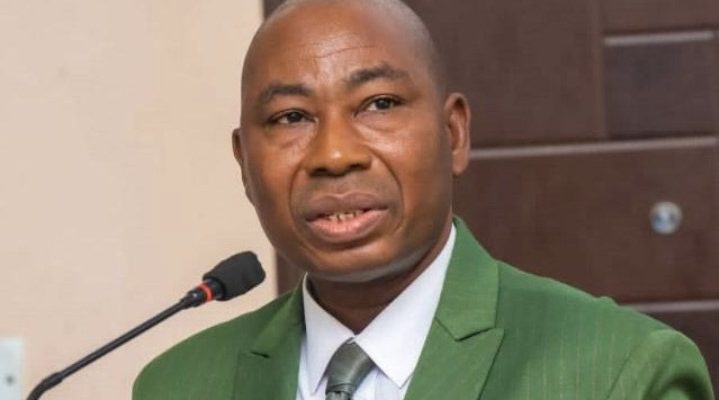
A university don from the Department of Zoology, Faculty of Science, University of Ibadan, Professor Adekunle Bakare has observed that African countries, including Nigeria spend less than 0.5 percent of their earnings on research, saying this poses a major challenge to the continent’s development.
Citing UNESCO’s Science Report in 2021 that Sub-Saharan Africa, which is home to 14 percent of the world’s people accounts for only 0.7 percent of the world’s researchers, he stated “this scenario needs to change, and obviously Nigeria should take the lead.”

Professor Bakare made these assertions on Monday while delivering the first faculty lecture of the Faculty of Applied Sciences KolaDaisi University, held at the Sherifat Agbeke Auditorium of the institution.
The theme of the maiden lecture is ‘Strengthening Scientific Research for Sustainable Development in Nigeria.’
According to the former Dean of Faculty of Science, University of Ibadan, some of the challenges militating against scientific research in Nigeria include obsolete and declining quality of research infrastructure,; lack of adequate motivation for research, frequent industrial actions, among others.
Bakare, who submitted that science is the fulcrum of national development decried the absence of strong linkages between researchers and industry, saying “there is a strong disconnect between researchers and industry due to poor research translation.
He posited that there are quite a number of research outputs relevant to national development churned out yearly by researchers as well as huge number of professionals who are capable of solving the problems of inadequate power supply, low potable water supply coverage, poor sanitation, poor infrastructure, , among others in the country.
He, however, observed that many of them had left and are leaving the country to seek greener pastures on the basis of lack of employment opportunities, poor remuneration, lack of incentives to practice locally, and insecurity causing a serious brain drain for the country.
To strengthen scientific research capacity in Nigeria, he suggested that critical focus, serious commitment and much investment be accorded to the sustainability of science and scientific research, adding that no nation can rise above the quality of its education, and by extension, its capacity for scientific research and innovation.
He highlighted other critical measures for strengthening research capacity to include provision of adequate, relevant, and up to date scientific research facilities; capacity building and retention for scientific researchers, partnerships and collaborations from within and outside the country, the need for scientific researchers to join national, regional and global networks as well as adequate remuneration and special incentives for scientific researchers.
He added that governmental support for scientific researchers to actively participate in international scientific workshops and conferences would strengthen their exposure to modern practices and contemporary realities in the research sphere.
Earlier in his welcome address, the vice chancellor of the institution, Professor Adeniyi Olatubosun, said no nation can thrive without science and technology and in a bid to contribute to national development, the university has deemed it fit to promote science and technology by synthesising the young minds who wants to pursue their career in sciences to be able to have a firsthand information on the usefulness of science to national development.
The dean of Faculty of Applied Sciences, KDU-I who doubled as the host, Professor appealed to the young scientist to take their science subject more seriously and
Speaking on the sideline, the former dean of Faculty of the Faculty of Applied Sciences, KDU-I Professor Olajumoke Morenikeji said that there are lots to be harnessed from the university system and research institutes by the government when it comes to research.
He solicited f for a cohesion in the regard that could bring about a national strength in order to have unified direction and sustainability of scientific research as a nation.








